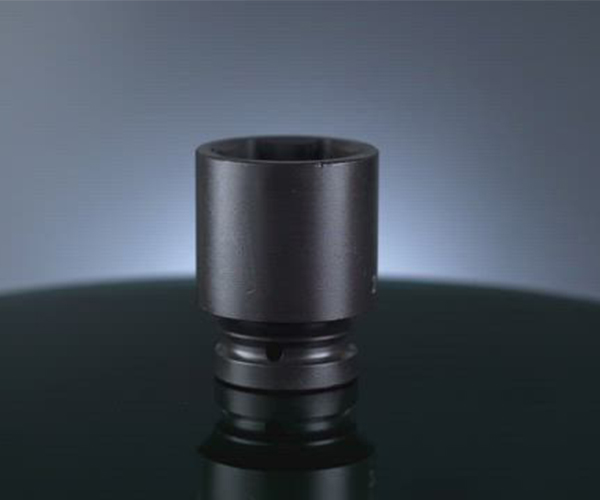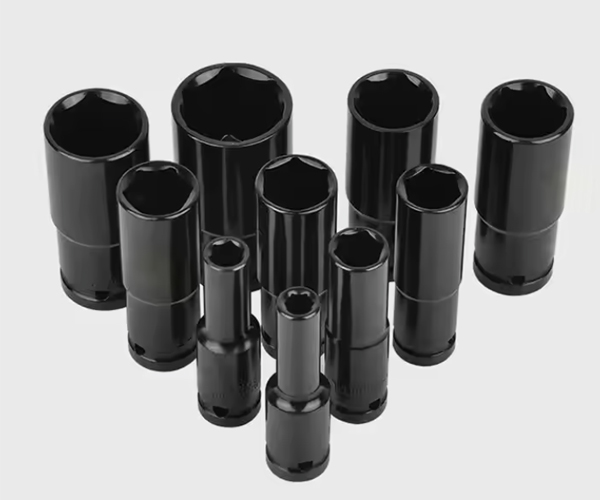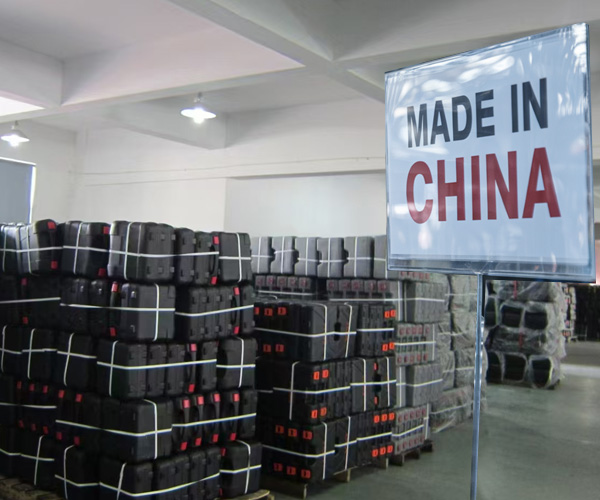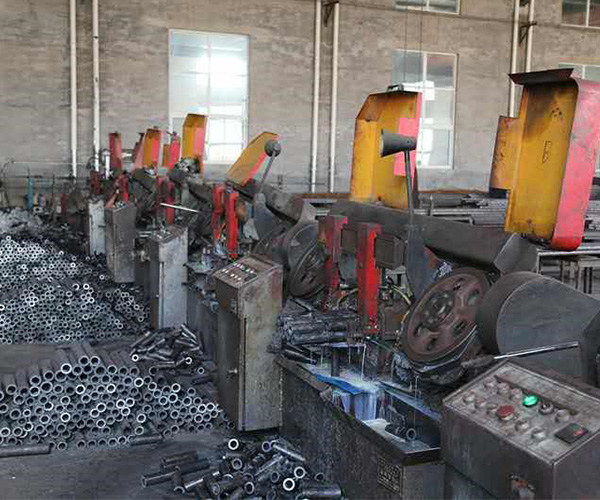Introduction
In the world of industrial tools, impact socket sets are indispensable. Designed for high-torque applications, these heavy-duty socket sets are widely used in automotive repair, industrial machinery maintenance, and construction projects. For global distributors, the challenge lies in sourcing these impact socket sets at a cost-effective rate without compromising on quality. Efficient procurement practices enable distributors to secure competitive pricing, maintain consistent product quality, and offer reliable inventory to meet market demand.
This article provides a comprehensive guide to help distributors navigate the process of procuring impact socket sets effectively. From understanding essential product specifications to evaluating suppliers and implementing cost-saving strategies, this guide covers every critical step in the procurement process. Whether you’re a seasoned distributor or new to the industry, this resource is designed to enhance your procurement strategies and maximize value for your business.
Understanding Impact Socket Sets
What is an Impact Socket Set?
Impact socket sets are specialized tools designed for use with high-torque impact wrenches, drills, and other power tools. Unlike standard sockets, impact sockets are built with durable materials like chrome molybdenum steel, which provides the strength to withstand the extreme forces exerted during heavy-duty tasks. These socket sets are essential for automotive and industrial applications where tasks require high impact and resistance to wear and tear.
Each impact socket set typically includes a range of socket sizes, extensions, and accessories that allow for versatile use in a variety of tasks. These sockets often feature a black oxide or phosphate finish that adds corrosion resistance, prolonging their lifespan even in challenging conditions. The combination of strength, durability, and versatility makes impact socket sets a staple in professional toolkits across multiple industries.
Key Features to Look for in Impact Sockets
When selecting impact sockets, understanding the essential features is critical to ensure quality and performance. Key factors to consider include:
- Material: Most high-quality impact sockets are made from chrome molybdenum (Cr-Mo) steel, which offers superior strength and impact resistance.
- Finish: A protective coating such as black oxide or phosphate is ideal for preventing rust and extending the lifespan of the sockets.
- Size Range: Look for socket sets with a comprehensive range of sizes to ensure compatibility with various fasteners.
- Torque Strength: Impact sockets must be able to withstand the high torque generated by impact tools, so it’s essential to check torque ratings.
- Drive Type: Available in various drive sizes (e.g., 1/4-inch, 3/8-inch, 1/2-inch), it’s crucial to select sockets compatible with the power tools being used.
Understanding these features can help distributors make informed choices that align with their clients’ needs and the specific demands of their markets.

Types of Impact Sockets
Impact sockets come in several types, each suited to specific applications. Key types include:
- Standard Impact Sockets: The most common type, suitable for general applications in automotive and industrial fields.
- Deep Impact Sockets: Longer sockets designed to reach recessed fasteners, ideal for applications where fasteners are hard to access.
- Universal Impact Sockets: These sockets have a swivel feature that allows for use at various angles, providing flexibility in confined spaces.
Each type serves a unique purpose, and offering a variety within a product line can appeal to a broader customer base, as different industries often have specific socket requirements.
Industry Standards and Certification Requirements
When it comes to impact sockets, adhering to industry standards is essential to guarantee product quality and safety. Certifications such as ISO (International Organization for Standardization) and ANSI (American National Standards Institute) are widely recognized and ensure that the tools meet international safety and quality benchmarks. Compliance with these standards provides an assurance to customers and helps distributors build trust in the product’s quality.
For distributors, sourcing impact socket sets from suppliers who meet these certifications is an effective strategy to ensure product reliability. Additionally, promoting these certifications can be a selling point, as customers often look for certified products that guarantee durability and performance.
Benefits of Procuring Impact Sockets in Bulk
Cost Reduction through Bulk Buying
One of the primary benefits of bulk procurement is the cost savings it provides. When distributors purchase impact socket sets in large quantities, they can take advantage of volume discounts that significantly reduce the per-unit price. Bulk buying is particularly advantageous for distributors aiming to maximize profit margins while offering competitive prices to their customers. The larger the order, the more leverage distributors have to negotiate with suppliers, which can result in even greater savings.
Beyond direct savings, bulk purchasing reduces costs associated with frequent ordering and logistics. For example, instead of placing multiple smaller orders, which may incur additional shipping charges each time, a single bulk purchase reduces the frequency of shipments, lowering overall transportation costs. This streamlined approach to purchasing and shipping helps distributors save on both procurement and logistical expenses, which is essential for maintaining profitability.
Consistency in Product Quality and Availability
Procurement in bulk helps ensure consistency in product quality and availability. By ordering a significant quantity from a single trusted supplier, distributors reduce the risk of quality discrepancies that can arise from sourcing smaller quantities from multiple suppliers. Consistent product quality builds a reliable reputation for distributors, enhancing customer satisfaction and trust. Furthermore, bulk purchases create a steady supply of inventory, allowing distributors to meet client demand promptly, particularly during peak seasons or high-demand periods.
Maintaining inventory consistency is particularly beneficial for distributors in industries with cyclical demand patterns. For example, automotive repair shops may experience increased demand for impact socket sets during certain times of the year, and bulk buying ensures that distributors can respond to these fluctuations without delays or shortages.
Improved Negotiation Leverage
Purchasing in bulk provides distributors with more significant negotiating power. Larger orders make distributors valuable customers to suppliers, enabling them to negotiate favorable terms such as extended payment periods, customized packaging, or even product exclusivity in certain regions. These advantages make the procurement process more flexible and tailored to the distributor’s specific business needs.
Effective negotiation can lead to long-term benefits that go beyond immediate cost savings. For example, suppliers may prioritize bulk buyers when new products are launched, giving distributors a competitive edge. Additionally, distributors who commit to regular bulk orders may secure priority customer status, ensuring that their orders are fulfilled promptly even during times of high demand.
Simplified Logistics and Inventory Management
Managing logistics and inventory becomes easier when purchasing in bulk. With fewer shipments to handle, distributors can save time on order processing, tracking, and inventory replenishment. Bulk procurement also allows distributors to plan and organize inventory in advance, reducing the likelihood of stockouts and ensuring a more efficient supply chain.
Bulk buying also facilitates better warehousing practices. By stocking a consistent supply of impact socket sets, distributors can optimize storage space and minimize the need for frequent inventory checks. Simplified logistics and efficient inventory management contribute to a smoother distribution process, ultimately saving time and resources for the business.
Key Factors in Selecting an Impact Socket Supplier
Evaluating Supplier Credibility
Choosing the right supplier is crucial for successful impact socket procurement. To evaluate a supplier’s credibility, distributors should consider factors such as the supplier’s track record, customer reviews, and industry reputation. Established suppliers with a history of quality products and reliable service are generally safer choices, especially for bulk orders where the risk associated with unreliable suppliers is higher.
Suppliers with relevant industry certifications are often preferable, as they demonstrate a commitment to maintaining high standards in production and quality control. For instance, a supplier with ISO or ANSI certifications offers a level of assurance in product consistency and durability. Distributors should also seek references or testimonials from other clients, particularly those within the same industry, to gauge the supplier’s reliability and performance.
Assessing Quality Control Measures
Effective quality control is essential when sourcing impact socket sets. Distributors should inquire about the supplier’s quality control processes, including testing methods for durability, torque strength, and material quality. A rigorous quality control protocol ensures that each socket meets industry standards and is free from defects that could compromise performance.
In addition to quality testing, suppliers should conduct regular batch inspections to maintain consistency across all products. Distributors may also consider arranging for third-party inspections as an extra measure to verify the product’s quality before it reaches their inventory. By ensuring thorough quality control, distributors can avoid potential issues that could lead to customer complaints, returns, or reputational damage.
Pricing and Payment Terms
Pricing and payment terms are critical considerations in the supplier selection process. Transparent pricing allows distributors to assess the total cost of procurement accurately, including any hidden fees related to customization, packaging, or expedited shipping. Favorable payment terms, such as extended payment periods or installments, can provide distributors with additional financial flexibility and reduce upfront expenses.
For distributors with high order volumes, some suppliers may offer custom pricing structures or additional discounts. Distributors should also clarify payment methods and any potential penalties for late payments to ensure that all terms are favorable and align with their financial capabilities.
MOQ (Minimum Order Quantity) and Flexibility
Minimum Order Quantity (MOQ) is an important factor for distributors, particularly those who may not need excessively large quantities. MOQs vary between suppliers, with some requiring significant quantities that may not be feasible for smaller distributors. In such cases, it’s advisable to look for suppliers with flexible MOQs that can accommodate smaller orders without imposing higher per-unit costs.
Flexibility in MOQs is particularly beneficial for distributors who want to test a new supplier or introduce a new product line without committing to a large initial order. Negotiating lower MOQs or exploring a trial order can help distributors assess product quality and supplier reliability before making a more substantial investment.
Cost-Saving Strategies in Impact Socket Procurement
Leveraging Seasonal Promotions and Discounts
Seasonal promotions and supplier discounts offer excellent opportunities for cost savings. Many suppliers provide discounts during off-peak seasons or holidays to boost sales, which distributors can take advantage of to lower their procurement costs. Timing purchases to coincide with these promotions can result in substantial savings, especially when ordering in bulk.
Distributors should communicate regularly with suppliers to stay informed about upcoming promotions or clearance sales. Some suppliers also offer loyalty discounts for repeat customers, making it beneficial for distributors to build strong, long-term relationships with suppliers. Leveraging these discounts can optimize procurement costs and increase overall profitability.
Negotiating Long-Term Contracts for Price Locks
Securing a long-term contract with a supplier can provide additional cost benefits, particularly through price locking. A price lock guarantees that the cost per unit remains stable over a specified period, protecting distributors from price fluctuations caused by raw material costs, inflation, or supply chain disruptions.
Long-term contracts also offer the potential for additional perks, such as priority order processing and customized product options. For distributors, locking in prices not only aids in budgeting but also ensures stable pricing for their clients, which can be a competitive advantage.
Considering OEM and Private Label Options
Original Equipment Manufacturer (OEM) and private label options allow distributors to create a unique brand identity and customize products to meet specific client needs. OEM options enable distributors to modify socket designs, add branding, or adjust packaging, which can enhance the product’s market appeal and potentially command higher prices.
Private labeling can be cost-effective as it allows distributors to purchase impact sockets directly from manufacturers and brand them under their own label. This approach provides a competitive advantage and can also reduce costs, as it eliminates the need to invest in a separate brand. Additionally, private-label products allow distributors to stand out in a crowded market by offering something unique.
Utilizing Consolidated Shipping
Consolidated shipping is an effective strategy for reducing logistics costs, particularly for international orders. By grouping multiple shipments into a single container, distributors can reduce shipping fees, import duties, and handling costs. Consolidation also streamlines the delivery process, as all items arrive simultaneously, simplifying customs clearance and warehousing.
Working with freight forwarders or third-party logistics providers can facilitate consolidated shipping and further optimize costs. By using efficient shipping methods and consolidating orders, distributors can significantly reduce their logistics expenses, particularly when dealing with high-volume international shipments.
Choosing Between Domestic vs. International Suppliers
Comparing Costs: Domestic vs. Overseas
When sourcing impact socket sets, distributors must weigh the cost implications of choosing domestic versus international suppliers. Domestic suppliers may offer shorter lead times and lower shipping costs, but overseas suppliers, particularly in regions like Asia, often provide more competitive pricing due to lower manufacturing costs. Distributors must consider both production and logistical expenses when deciding between domestic and international options.
In some cases, a hybrid approach may be beneficial, with distributors sourcing certain products domestically for quick fulfillment and others internationally for cost savings. This strategy balances the cost advantages of international sourcing with the convenience of domestic supply.
Evaluating Product Quality and Lead Time
Product quality and lead time are essential factors when comparing suppliers. Overseas suppliers may offer competitive prices but could involve longer shipping times due to distance and customs clearance processes. Distributors must evaluate whether they can accommodate extended lead times or if quicker turnaround is essential for their business model.
Quality can vary between regions, so it is essential to thoroughly vet international suppliers, conduct quality checks, and request samples before placing bulk orders. Working with suppliers that have established quality standards and reliable logistics can mitigate the risks associated with overseas procurement.
Understanding Customs, Tariffs, and Import Taxes
Distributors sourcing impact sockets internationally must account for customs, tariffs, and taxes. Import regulations vary by country, and fees such as customs duties, Value Added Tax (VAT), or Goods and Services Tax (GST) can significantly impact the landed cost of imported products. It’s essential for distributors to familiarize themselves with these fees and consider them in their pricing strategy.
Some regions have trade agreements that reduce or eliminate certain tariffs, so exploring these agreements can help distributors minimize import costs. Consulting with customs brokers or logistics providers can also simplify the import process and help distributors avoid unexpected expenses.
Building Reliable Relationships with Overseas Manufacturers
Effective communication and trust are key to successful relationships with overseas manufacturers. Distributors should prioritize clear communication regarding order specifications, quality requirements, and delivery timelines. Language barriers, time zone differences, and cultural nuances can pose challenges, but proactive communication and regular check-ins help build strong, long-lasting partnerships.
Visiting the manufacturer’s facility, if possible, provides an in-depth understanding of their production capabilities and builds a direct relationship. For distributors, establishing a solid rapport with overseas manufacturers enhances product quality and reduces the risk of misunderstandings or delays.
Essential Considerations for Quality Assurance
Material Standards and Durability Tests
Ensuring that impact sockets meet material standards is fundamental to quality assurance. Chrome molybdenum steel is the preferred material due to its resilience under high torque, but it’s essential to verify that suppliers use high-quality raw materials. Distributors should confirm that their suppliers conduct regular durability tests to evaluate the socket’s strength and resistance to wear.
Quality testing should include torque testing, durability assessments, and material verification. Distributors may request testing reports or even third-party inspections to confirm the impact sockets’ quality, especially if dealing with new suppliers.
Inspection and Testing of Socket Sets
Rigorous inspection and testing are critical to delivering consistent product quality. In addition to torque and material strength tests, it’s beneficial to conduct batch testing to verify that each shipment meets the required specifications. Batch testing involves inspecting a sample of products from each production lot to ensure uniformity in quality.
Many suppliers offer third-party inspection services, which provide an unbiased evaluation of the product before shipment. Third-party inspections offer peace of mind for distributors, as they verify that the product aligns with quality expectations and industry standards.
Certifications to Seek for Compliance
Industry certifications, such as ISO, ANSI, and DIN, are valuable indicators of quality for impact socket sets. These certifications guarantee that the product meets internationally recognized standards and adheres to safety and performance guidelines. For distributors, sourcing products with these certifications provides a quality benchmark that can be communicated to customers as an assurance of reliability.
Ensuring Consistency with Batch Testing
Batch testing plays a vital role in maintaining product quality across large orders. This testing process involves randomly sampling products from each production batch and subjecting them to the same rigorous quality checks as the initial prototypes. Batch testing helps ensure that every socket in a bulk order is consistent in quality, strength, and durability, protecting the distributor’s reputation and enhancing customer satisfaction.
With these comprehensive considerations, distributors can make informed decisions when sourcing cost-effective, high-quality impact socket sets, optimizing both profitability and customer trust. Let me know if you’d like to continue the remaining sections.
Common Pitfalls in Impact Socket Procurement
Supplier-Related Challenges
Selecting the right supplier for impact socket sets is one of the most critical steps in procurement. However, supplier-related challenges can arise, particularly with international suppliers. Issues such as inconsistent product quality, unreliable delivery schedules, and insufficient communication can lead to significant disruptions in the supply chain. For example, suppliers who fail to adhere to agreed-upon quality standards may deliver products that do not meet durability requirements, leading to costly returns or reputational damage for the distributor.
To avoid these pitfalls, distributors should conduct comprehensive background checks on suppliers, including reviewing their past performance and customer feedback. Working with suppliers who offer transparency in their production processes and quality control protocols can also help mitigate risks. A trial order or sample request is another strategy to assess the supplier’s reliability and product quality before committing to a larger order.
Hidden Costs in International Procurement
While international sourcing can provide cost advantages, it often comes with hidden expenses that can erode profit margins. Currency fluctuations, import duties, VAT, and unexpected shipping fees can all add to the total landed cost of impact socket sets. For distributors unfamiliar with international logistics, these hidden costs can be challenging to anticipate and manage, particularly when sourcing from multiple regions.
One effective way to manage hidden costs is by working with a customs broker or logistics expert who can provide accurate estimates of import duties and taxes. Additionally, establishing a currency exchange strategy can minimize the impact of currency volatility. Factoring these expenses into the procurement budget will enable distributors to set more accurate pricing and protect their profit margins.
Quality Assurance Gaps
Quality assurance gaps are another common pitfall in impact socket procurement, especially when working with new or lower-cost suppliers. Inconsistent quality across shipments, missing certifications, or discrepancies in material standards can result in products that fail to meet customer expectations. Such issues are often due to inadequate quality control processes or insufficient oversight on the supplier’s part.
To mitigate these risks, distributors should insist on regular quality checks and batch testing, particularly for high-volume orders. Establishing clear quality requirements and communicating them to the supplier helps ensure consistency. Some distributors opt for third-party quality assurance services that conduct inspections and testing on-site to verify the product’s quality before it leaves the supplier’s facility.
Logistics and Shipping Delays
Shipping delays can severely impact a distributor’s ability to deliver products on time, especially for time-sensitive industries like automotive repair and construction. Factors such as customs clearance issues, port congestion, and transportation delays can all lead to prolonged lead times, resulting in missed sales opportunities and dissatisfied customers.
Effective logistics planning can help reduce the risk of delays. Partnering with experienced freight forwarders and opting for consolidated shipping options can streamline the shipping process. Additionally, choosing suppliers with reliable shipping histories and backup inventory options can provide a buffer against unforeseen delays.
Optimizing the Procurement Process for Distributors
Establishing a Procurement Strategy
An effective procurement strategy is essential for distributors to manage costs, quality, and supplier relationships. This strategy should include identifying key procurement goals, such as cost reduction, quality assurance, and supplier reliability, and implementing procedures to achieve these objectives. A well-defined procurement strategy helps streamline decision-making and ensures that all stakeholders are aligned with the company’s procurement priorities.
The strategy should also include metrics to track performance, such as on-time delivery rates, cost savings, and quality consistency. By evaluating these metrics regularly, distributors can identify areas for improvement and adjust their procurement approach accordingly.
Implementing Digital Tools for Procurement and Inventory
Digital tools, such as Enterprise Resource Planning (ERP) systems and e-procurement platforms, are invaluable for modernizing the procurement process. These tools provide real-time tracking of inventory, order status, and supplier performance, enabling distributors to make informed decisions quickly. With automated order processing and inventory tracking, ERP systems reduce human error and improve efficiency.
Furthermore, e-procurement platforms allow distributors to manage supplier relationships, compare quotes, and place orders digitally, making the procurement process more streamlined and transparent. For distributors handling multiple suppliers, digital tools can be particularly useful for coordinating orders and maintaining a comprehensive view of the supply chain.
Building Long-Term Supplier Relationships
Long-term relationships with reliable suppliers offer multiple advantages, including more favorable pricing, priority order processing, and consistent product quality. Distributors who foster strong relationships with their suppliers benefit from improved communication and a more collaborative approach to problem-solving, which can enhance overall procurement efficiency.
To build lasting relationships, distributors should prioritize open communication and transparency, clearly outlining their expectations and maintaining regular contact. Regular feedback on product quality, delivery performance, and other aspects of the supplier’s service also helps suppliers understand the distributor’s needs, fostering a partnership built on trust and reliability.
Feedback Loops for Continuous Improvement
Implementing feedback loops is an essential part of optimizing procurement processes. Gathering feedback from customers, sales teams, and suppliers can provide valuable insights into the performance of impact socket sets and help identify areas for improvement. For instance, feedback on product durability or ease of use can guide future procurement decisions, ensuring that distributors select products that meet customer needs effectively.
By maintaining an open channel for feedback, distributors can continuously refine their procurement approach and make data-driven decisions. This proactive approach not only enhances product quality but also contributes to a more responsive and customer-focused distribution strategy.
Impact Socket Set Packaging and Shipping Requirements
Optimal Packaging Solutions
Proper packaging is crucial for protecting impact socket sets during transit. Since these tools are often heavy and prone to rust, packaging must be durable and moisture-resistant. Common packaging materials include sturdy cardboard boxes, foam inserts, and plastic wraps that prevent movement and shield the sockets from damage or corrosion.
Customized packaging can add value by providing clear labeling for easy identification, user manuals, and branded inserts that enhance the unboxing experience for end users. For international orders, distributors may need to consider additional protective measures, such as plastic liners or desiccants, to safeguard against environmental factors during long shipping periods.
Handling and Storing Impact Sockets to Maintain Quality
Proper handling and storage practices are essential to maintain the quality and longevity of impact socket sets. Distributors should ensure that storage facilities are dry and temperature-controlled to prevent rust or corrosion. Additionally, impact sockets should be stored in a way that avoids unnecessary friction, which can lead to surface wear.
For distributors who offer customized or private-label products, storage options such as branded cases or modular storage trays can improve organization and add value for customers. Regular inspection of stored inventory for signs of corrosion or wear can help distributors identify and address potential quality issues before they reach the customer.
Shipping Considerations for International Orders

Shipping impact sockets internationally involves careful planning to ensure safe and timely delivery. International shipments may require compliance with specific export regulations, and it’s essential to have all required documentation, such as invoices, packing lists, and certificates of origin, prepared in advance. Insuring shipments is also recommended, as it provides financial protection in case of loss or damage during transit.
Working with experienced freight forwarders and using consolidated shipping can further reduce costs and simplify customs procedures. By proactively managing shipping logistics, distributors can avoid delays and provide reliable delivery timelines to their customers.
Environmental Impact and Eco-Friendly Packaging Options
As environmental consciousness grows, distributors are increasingly considering eco-friendly packaging solutions. Sustainable packaging options, such as recycled cardboard and biodegradable materials, offer an environmentally responsible way to package impact sockets. By using eco-friendly packaging, distributors can appeal to environmentally conscious customers and reduce their ecological footprint.
For distributors, adopting sustainable packaging can also strengthen brand reputation, particularly among customers who prioritize sustainability. Providing clear labeling about the recyclability of packaging materials helps customers make informed choices and supports broader environmental efforts.
Future Trends in Impact Socket Procurement
Rising Demand in Emerging Markets
As industries in emerging markets continue to grow, the demand for industrial tools like impact socket sets is rising. Distributors should monitor these markets and adapt their procurement strategies to cater to new customer segments. This expansion presents an opportunity for distributors to diversify their clientele and increase revenue by supplying to regions with growing demand for high-quality industrial tools.
In addition to monitoring demand, distributors can also consider partnerships or distribution channels within these emerging markets, which can simplify logistics and increase accessibility for local customers.
Digital Transformation in Procurement
Digital transformation is reshaping the procurement landscape, offering tools that streamline sourcing, inventory management, and supplier relationships. Technologies such as artificial intelligence (AI) and blockchain are making supply chains more transparent and efficient, allowing distributors to track product origin, quality, and transit status in real-time. By adopting these digital solutions, distributors can optimize procurement workflows and enhance visibility across their supply chains.
AI-powered platforms can also assist in forecasting demand trends, allowing distributors to plan procurement more accurately and minimize the risk of overstocking or stockouts. As digital technology becomes more prevalent, distributors who embrace these innovations can gain a competitive edge in the market.
Sustainability and Eco-Friendly Materials
Sustainability is an increasing focus in the industrial tools sector, with customers and distributors alike seeking eco-friendly products and materials. For impact socket sets, this trend includes sourcing sustainable materials for production, using environmentally friendly packaging, and reducing waste throughout the supply chain. Distributors who prioritize sustainability in their procurement strategies can differentiate themselves and attract a growing base of environmentally conscious customers.
Manufacturers are responding to this demand by adopting more sustainable production practices, such as using recycled materials or reducing energy consumption in production. Distributors can support these initiatives by working with suppliers who are committed to sustainability and promoting these practices to their customer base.
Increasing Customization and Private Label Opportunities
The demand for customized and private-label products is growing as distributors seek to differentiate their offerings in a competitive market. Customization allows distributors to tailor products to specific customer needs, such as unique sizes, designs, or branding elements. Private labeling, on the other hand, enables distributors to create a unique brand identity, building customer loyalty and recognition.
Private labeling is particularly advantageous for distributors who wish to offer exclusive products that cannot be sourced elsewhere. By working directly with manufacturers on customized orders, distributors can develop impact socket sets that stand out in the market, adding value for both themselves and their customers.
Conclusion
Cost-effective procurement of impact socket sets is an achievable goal with the right strategies. By understanding the product’s key features, sourcing from reputable suppliers, and implementing effective cost-saving measures, distributors can secure high-quality impact sockets at competitive prices. Additionally, optimizing logistics, managing hidden costs, and embracing digital tools are vital steps in creating an efficient and profitable procurement process.
In an industry that values reliability and consistency, distributors who invest in quality control, build strong supplier relationships, and adapt to emerging trends will position themselves for long-term success. By following the practices outlined in this guide, distributors can enhance their impact socket procurement process, offering quality products to their customers while maximizing their own profitability. Thank you for exploring these strategies with us—your journey toward successful impact socket procurement starts here!
Join Us on the Path to Smarter Procurement!
Ready to transform your impact socket procurement strategy? Join us in streamlining your sourcing process, optimizing costs, and accessing high-quality tools tailored to meet global standards. At KOLARWIN, we are dedicated to helping distributors like you secure cost-effective, durable, and reliable impact socket sets that add value to your business.
Let’s partner together for a seamless, efficient, and profitable procurement experience. Reach out to us today and take the first step toward smarter, more successful sourcing!





